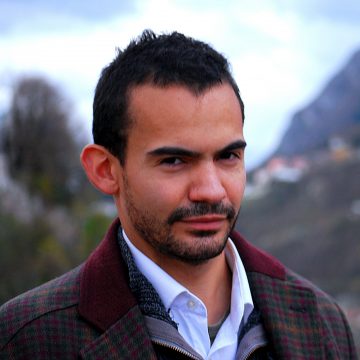Ryerson Christie, Gilberto Algar-Faria, Ana E. Juncos, Katarina Đokić, Marija Ignjatijević, Nabila Habbida, Khadir Abdi, Savannah Simons and Erin Gillette
5 November 2018
This article presents the main findings of the EU-CIVCAP Report DL 6.3, “Report on best practices in EU local capacity building”, published on 24 September 2018. The report was authored by the same individuals who wrote this blog article.
From the initial emergence of liberal peacebuilding in the early 1990s, there has been a sustained focus on promoting the roles of civil society actors, and in particular non-governmental organisations (NGOs). Civil society is presented by (often Western) academics and policymakers alike as a core instrument via which to instil norms of democratic behaviour, as a check on the power of the state, and as an efficient mechanism through which to deliver policy. Following the limited success of liberal peacebuilding initiatives, the promotion of civil society has been increasingly accompanied by calls to integrate local communities into peacebuilding processes. This host of initiatives that place the responsibility to build peace on the state and sub-state level constitutes the localisation of peacebuilding. Encapsulated in a range of notions including ‘local participatory models’, ‘local capacity building’, ‘localisation’ and ‘local ownership’ (to name just a few), international actors such as the EU and the UN have sought to restructure their peace initiatives to provide mechanisms for the effective integration of civil society and local communities into peacebuilding.
This local shift is seen by policymakers as essential to achieving the ‘buy-in’ of communities into the broader peace processes, to redressing local drivers of violent conflict, and to ensuring that international interventions result in a peace that is both emancipatory and sustainable. However, this attention to the local level has not resulted in any significant shift in the major actors involved in peacebuilding. Rather than directly engaging with communities, the drive to achieve local ownership has been pursued mainly through NGOs. As such, DL 6.3 finds that the pursuit of local ownership in peacebuilding, while having a more expressly emancipatory logic, has nevertheless continued to support NGOs as the primary delivery mechanism of for peacebuilding initiatives.
Deliverable 6.3 identifies lessons to be learned from a range of peacebuilding initiatives in Burma/Myanmar, Cambodia, Bosnia and Herzegovina, Serbia and Somalia/Somaliland. These form the basis of a series of best practice recommendations on how to maximise the potential impact of localisation policies to foster long-term sustainable peace. Given the current policy focus on NGOs noted above, EU-CIVCAP research focused specifically on the roles of formal civil society actors. While noting the limitations of current international approaches, the report’s intent is to recommend how international actors, in particular the EU, can work through civil society actors to foster and support such activities.
DL 6.3 finds that the narrative of local ownership has been embraced and integrated into the planning processes of both donors and NGOs. In discussing the importance of the concept to peacebuilding, the Deliverable observes two broad arguments being advanced. The first is that local ownership is essential if one is to obtain the cooperation and collaboration of communities in the broad peace processes, and to ensure that the work of NGOs in this sector is effective. This is a minimal expression of the value of ownership, but one that was reflected in the interviewees’ discussions of the role of local ownership, and that was replicated within many NGOs’ outreach policies. The methods that are closely aligned to this minimal conception include NGO-led information gathering at the local community level, community participation models that seek to improve policy delivery, and the creation of numerous policies to provide technical training on peacebuilding, mediation, and related issues to community members. Running through this is an interest in reflecting local needs but within a space where NGOs hold that the local communities lack the capacity either to determine their own peacebuilding needs or to implement programmes. In contrast, the maximal approach to local ownership derives from a position where local agency is foregrounded in projects, from project design, through implementation to assessment. While the latter is a goal that is clearly expressed by organisations in all of the cases surveyed, not a single interviewee pointed to a successful form of such engagement, but most noted the restriction of local capacity and the structural barriers arising from funding regimes.
DL 6.3 concludes by identifying the common points and policy recommendations arising across the case studies, which are detailed below.
Local context
- Fund a broader range of civil society actors. A focus on funding formal associations has sidelined traditional forms of civil society, silencing actors with a crucial role in peacebuilding. The EU should require local practitioners to partner with community based organisations—and other traditional forms of civil society—as implementation partners.
Funding structures
- Core funding. The shift away from providing core funding has made it difficult for organisations to sustain their activities, requiring them to pursue additional funding sources, thus taking time and resources away from project delivery.
- Long-term funding. By its nature, peacebuilding is an ongoing process and does not have a clear ‘point of achievement’. While states may appear stable years after the cessation of violence, addressing the underlying causes of violence remains a crucial activity for generations after that. It is recommended that future development funding agencies in all post-war and post-conflict environments reserve a percentage of their funding to sustain peacebuilding capacities.
- Fund community engagement during bid design. Allocate seed funding when funding calls are announced, in order to facilitate community-led programme design.
Reporting requirements
- Reduce the reporting burden on NGOs. To ensure that small local organisations are able to direct appropriate funding and human resources to project design and implementation, it is recommended that formal reporting requirements placed upon organisations by funders be reduced to one mid-programme and one end-of-programme review. NGOs should be allowed to submit the mid-programme review in an official language of the target country in which they operate. The costs of translating this review should be met by the funders. This would reduce the local organisations’ reliance on foreign development contractors, and would ensure that the project reports would be easily accessible by the target communities.
Sustained peacebuilding
- Intergenerational peace. As time passes after war and violent conflict have ended, a gap opens between the experiences of the different generations. This experience gap poses significant challenges to sustaining peace initiatives, addressing the structural causes of violence, and ensuring inter-generational justice. A core component of peacebuilding initiatives should therefore involve inter-generational peace programming.
- Long-term stable peacebuilding fund. Peacebuilding takes generations, yet donor funding quickly shifts to new priority areas. The EU should establish a long-term peacebuilding fund to ensure that peace initiatives are sustained for the decades following the formal end of violence.
- Empowering communities and addressing everyday problems as peacebuilding. To build intra-community peace, and to foster trust in local government, it is essential to address everyday problems (such as access to clean water and improving infrastructure). The EU should provide mechanisms for supporting flexible projects that allow for the rapid and efficient use of funds to respond to community-led initiatives as a mechanism of peacebuilding.
Related Deliverable
 DL 6.3
DL 6.3
Report on best practices in EU local capacity building
Authors: Christie, R., G. Algar-Faria, A.E. Juncos, K. Đokić, M. Ignjatijević, N. Habbida, K. Abdi, S. Simons and E. Gillette
Lead Institution: University of Bristol
Published: 24 September 2018
[PDF, ~0.7MB; click to access]
Photo details
Title photo caption: Yngvil Foss, the Deputy Head of the United Nations Office for the Coordination of Humanitarian Affairs, interacts with a family of flood victims on the outskirts of Belet Weyne. The city is currently experiencing its worst flooding ever with over 150,000 people displaced.
Title photo credit: UN Photo/Ilyas Ahmed
About the Author

Ana E. Juncos
Ana E. Juncos is the EU-CIVCAP Consortium Co-ordinator and team leader at the University of Bristol. She is a Reader in European Politics at the School of Sociology, Politics and International Studies.

Erin Gillette
Erin Gillette is Research Manager at Transparency Solutions. She has researched and co-authored many works with Transparency Solutions including pieces on corruption, youth participation in peacebuilding, governance, and conflict analysis in Somalia and the Horn of Africa.

Gilberto Algar-Faria
Gilberto Algar-Faria is the Project Officer for EU-CIVCAP and a Senior Research Associate at the University of Bristol’s School of Sociology, Politics and International Studies.

Katarina Đokić
Katarina Đokić has worked as a researcher in Belgrade Centre for Security Policy since March 2012.

Khadir Abdi
Khadir Abdi has lived and worked in Somaliland, Somalia and the UK and has deep local insight into Somali military and civil society with a global perspective supported by professional experience abroad.

Marija Ignjatijević
Marija Ignjatijević is a researcher at the Belgrade Centre for Security Policy since September 2017.

Ryerson Christie
Ryerson Christie is a Senior Lecturer in East Asian Studies. His research focuses on the interaction between local communities, NGOs and the state.

Savannah Simons
Savannah Simons read Social Policy and Politics at the University of Bristol where she supported the Economic and Social Research Council (ESRC) funded Transforming Insecurities project led out of the Global Insecurities Centre in the School of Sociology, Politics and International Studies.

